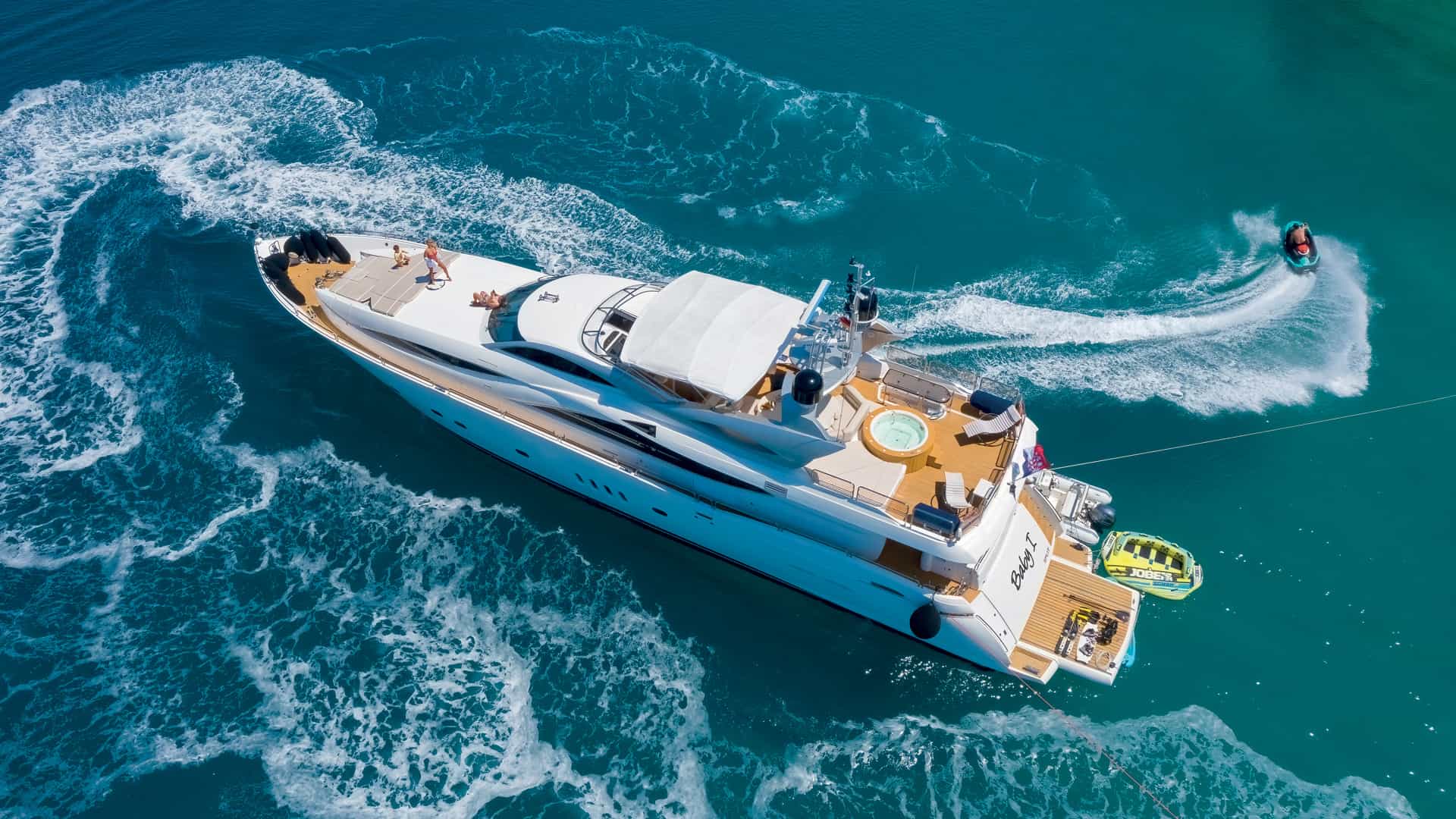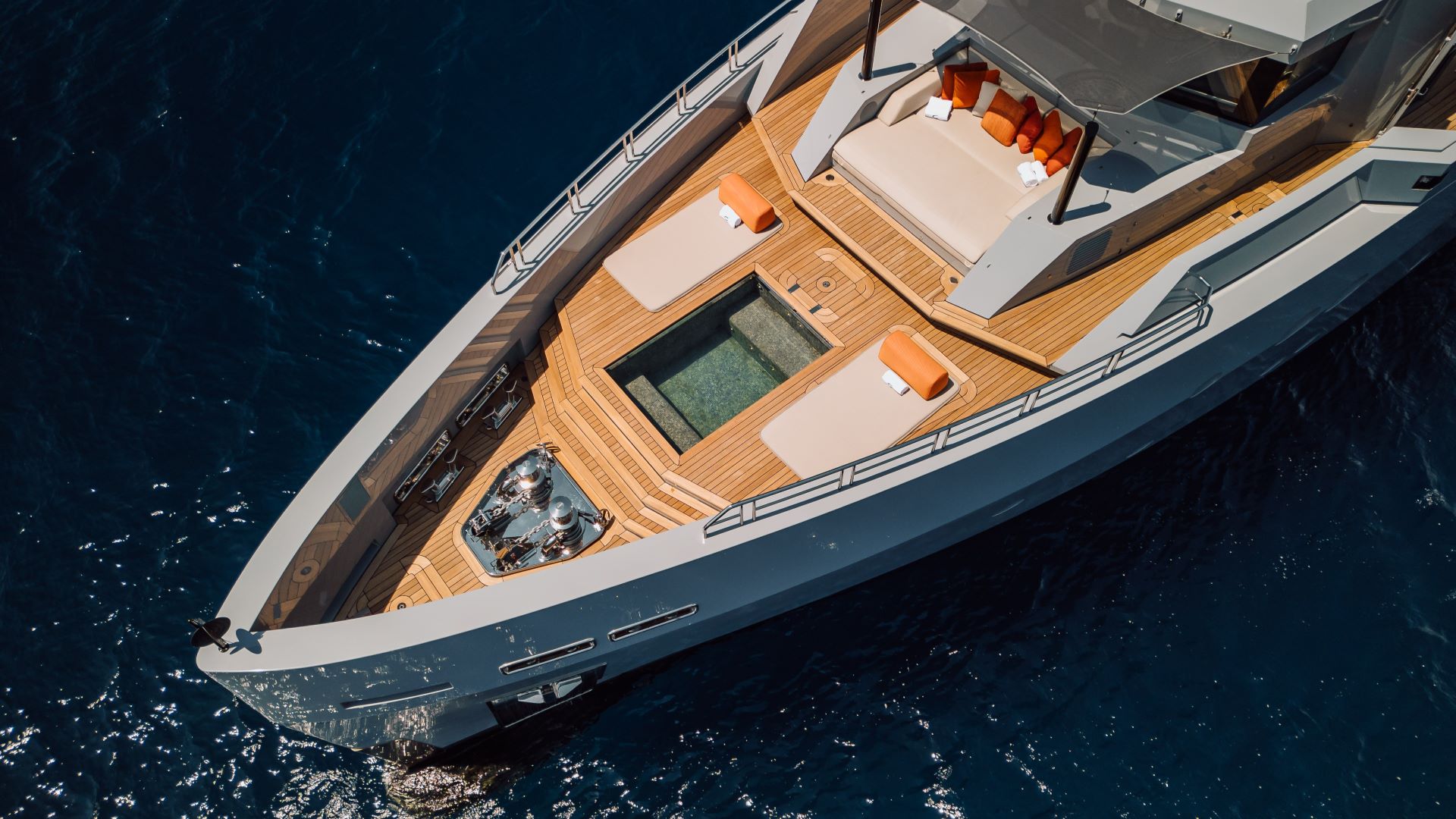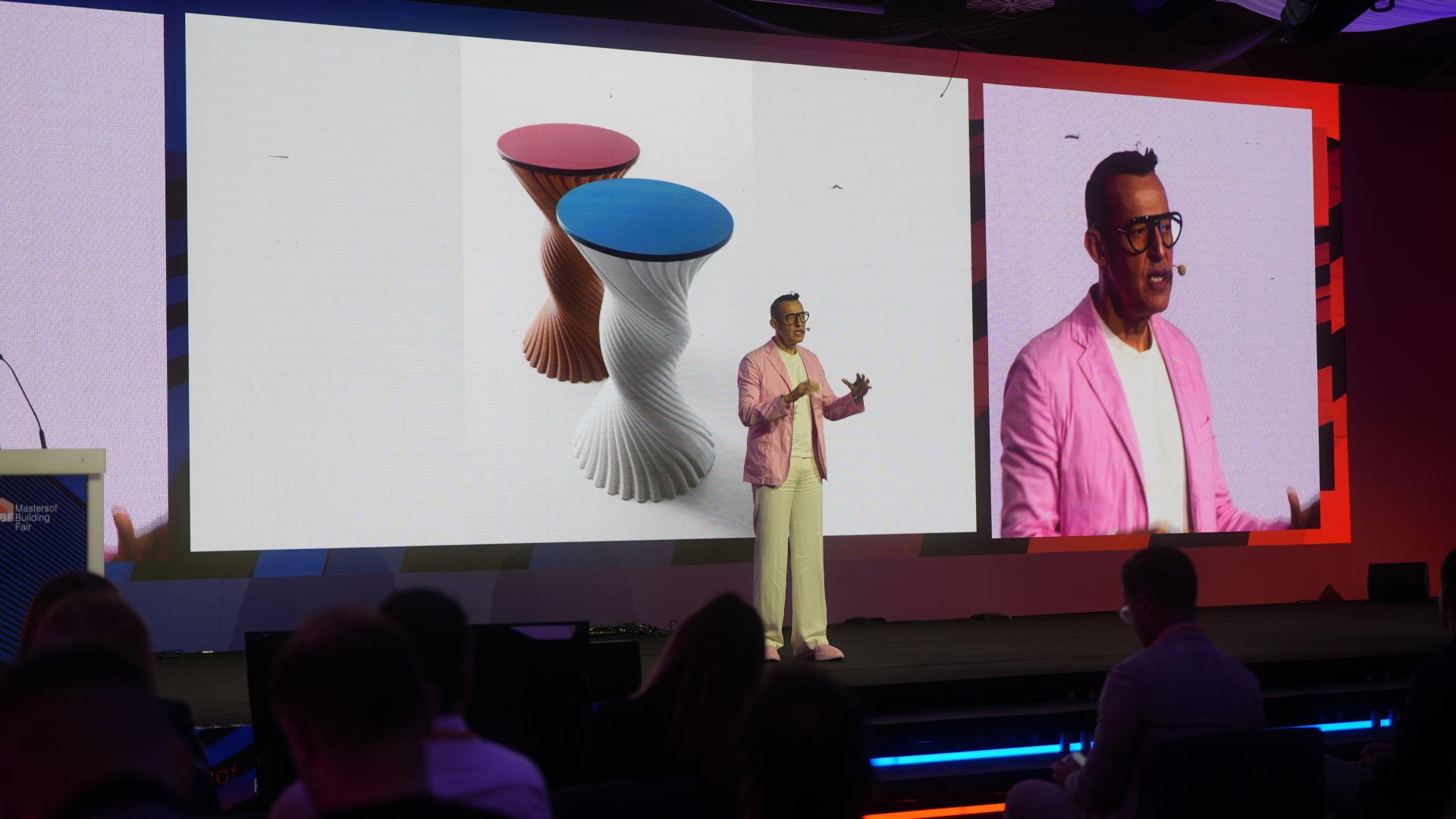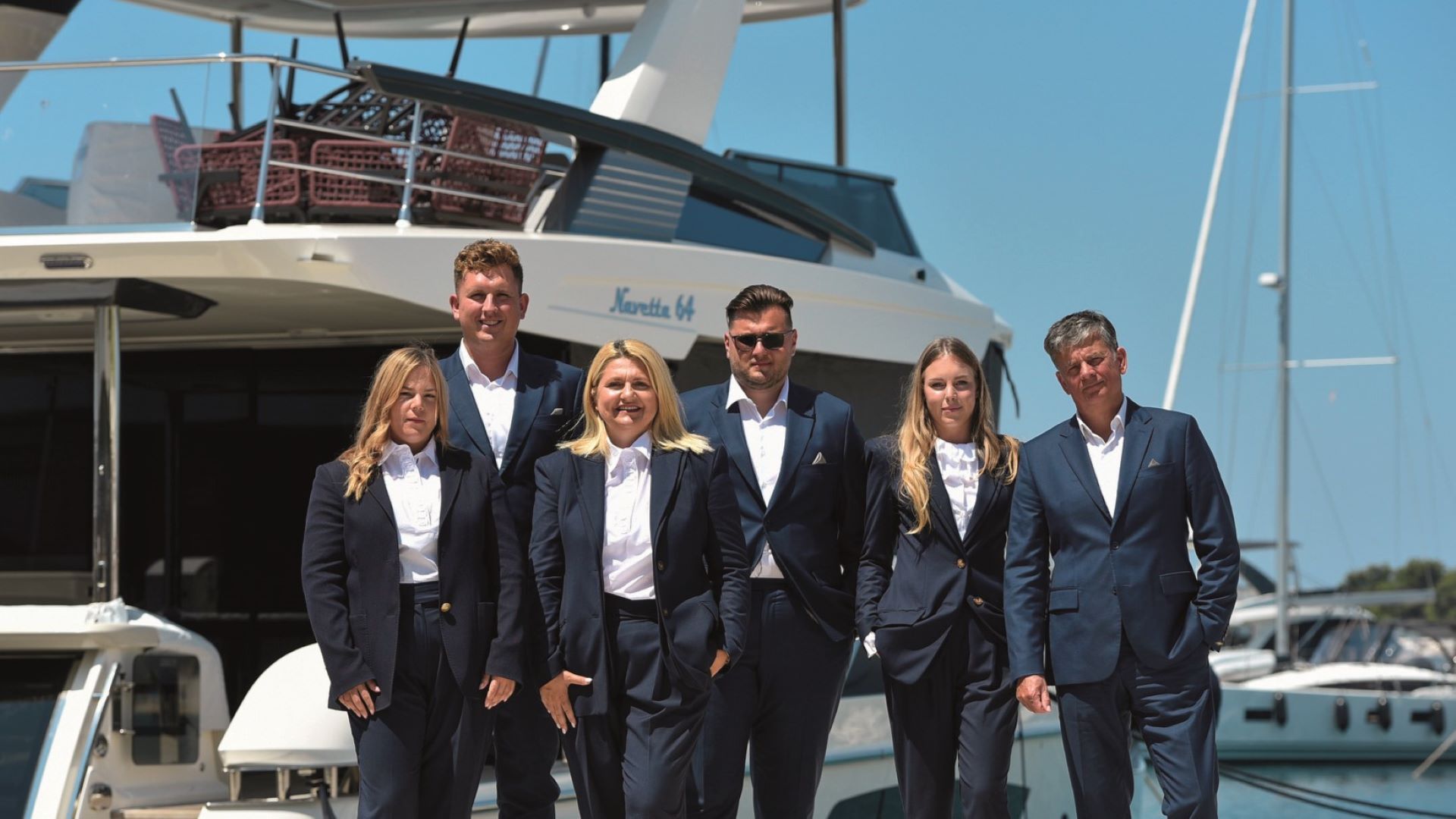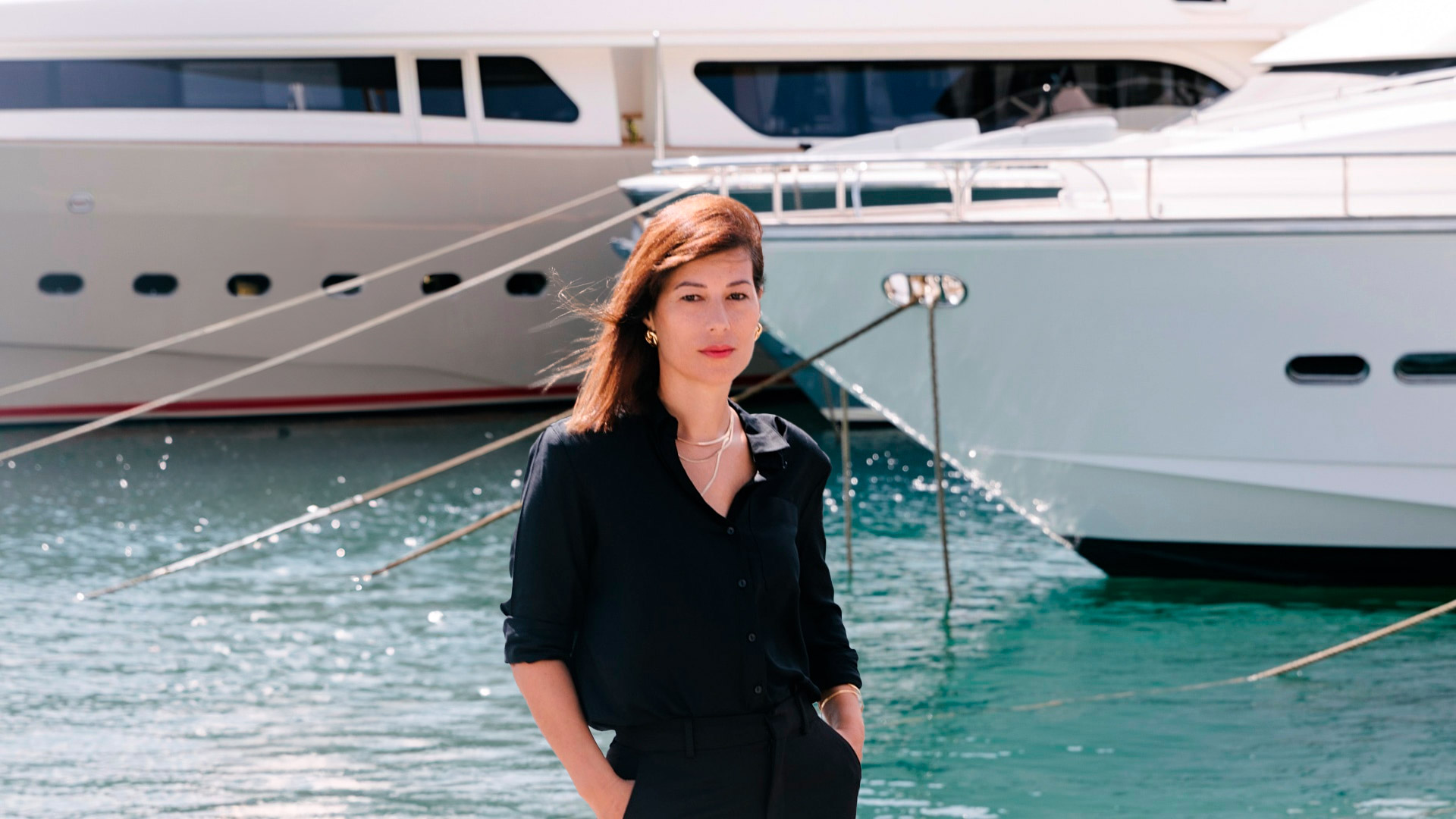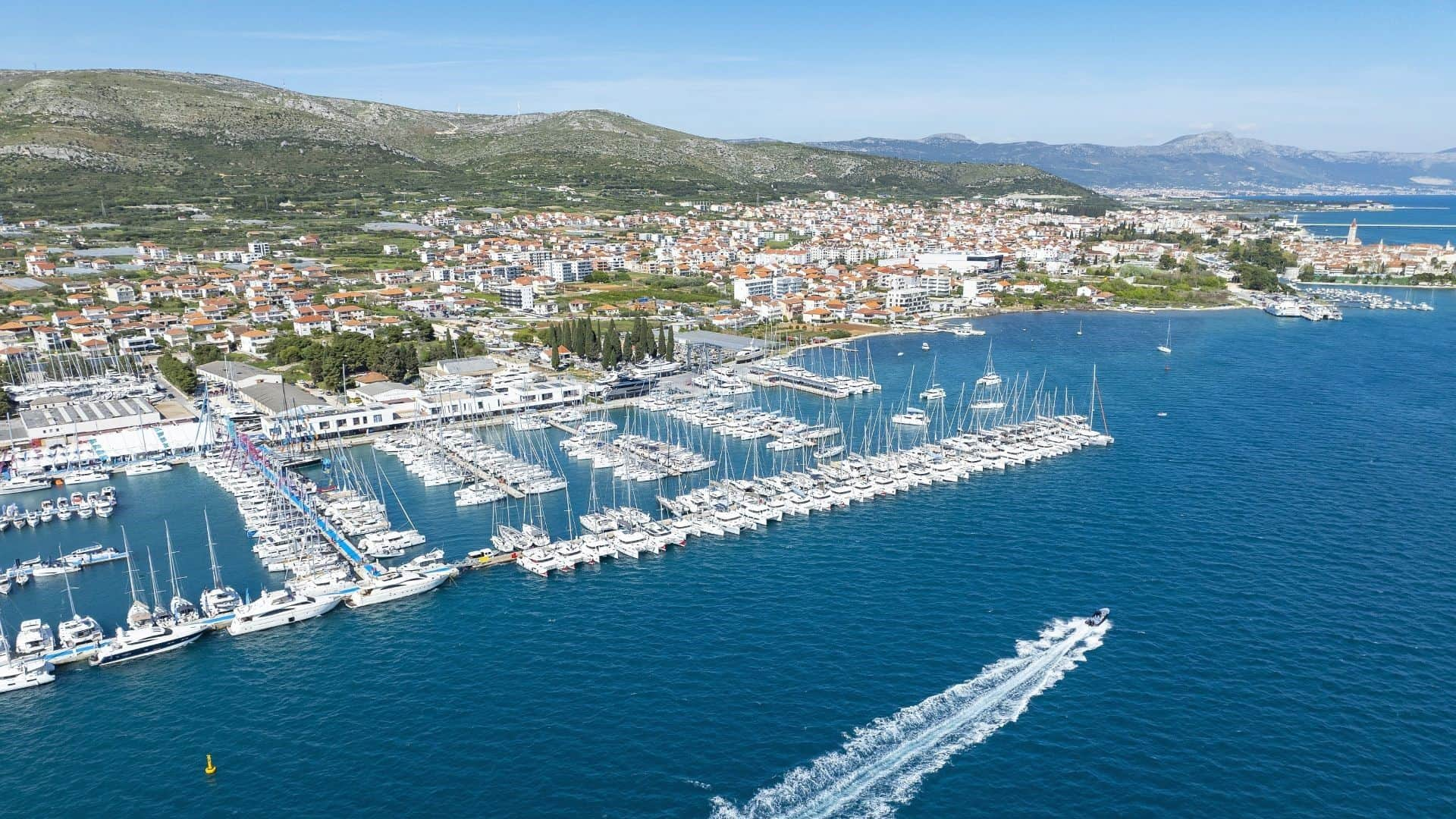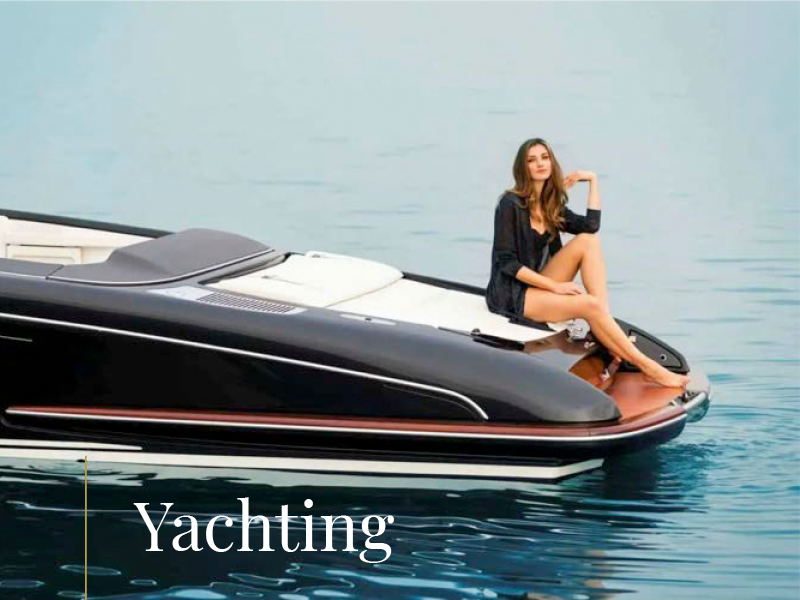The fractional ownership model is one that has enjoyed significant success in the business aviation, real estate and various other sectors, but despite its obvious merits and seemingly perfect compatibility with the yachting sector, it is an ownership format that has yet to gain widespread traction. We take a look at several initiatives that are performing well in an effort to discover the secret of their success…
‘The old line about the happiest days being when you buy the boat and when you sell it is true,’ says Michael Joyce, Chairman and CEO of Hargrave Yachts. And while he is banking on more people finding joy in buying than selling, he is honest when asked about fractional yacht ownership, ‘It believe it is the future of the industry,’ he says.
Several US companies recognized the need for a new approach to yacht ownership and have created a new model for attracting people in a harmonious, lifestyle-centric way.
What is Fractional Yacht Ownership?
Depending on your priorities, there are options and advantages to weigh while evaluating what can work for your lifestyle. Dr. Loren Simkowitz of Monocle Yachts pioneered the fractional yacht ownership business in 2000 because he saw it as a fun and affordable way to get people into yachting, while eliminating the high cost of equity.
‘The average honeymoon period for most yacht owners is 18- months,’ he states, ‘Then there’s a danger they can get tired of the issues and it takes the fun out of it.’ As an experienced property manager, Simkowitz saw the potential of managing the assets so the owners didn’t have the responsibilty-just the pleasure of having a fully staffed, provisioned and maintained yacht for their valuable R&R time at sea.
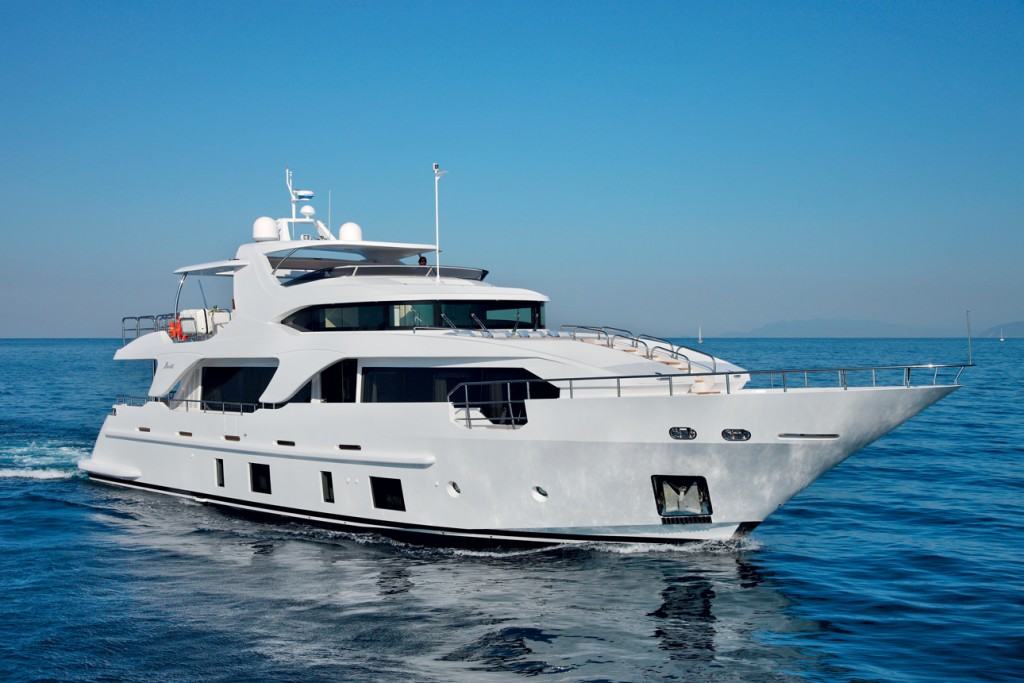
Currently, with 45 vessels ranging from 80 to 200′ feet in its fleet, Monocle Yachts handles all aspects of management and sells 10 percent shares in each yacht, entitling the owner to four weeks of yachting. Though the investment is 10 cents on the dollar, according to Simkowitz, it is ‘not just about the money.’
Benefits of share ownership
The true benefit is lack of commitment to operational affairs. ‘People are busy,’ he says, ‘They have multiple interests-they don’t want to do just one thing.’ Plus, if something does go wrong with the yacht, rather than face a potential $50,000 repair bill, his fractional owners looks at 10 percent of that, ‘You don’t have to worry,’ Simkowitz says.
The ownership group decides on locations, with recommendations by management, so the yacht can move from place to place, with current favorites being the British Virgin Islands, Bahamas and other Caribbean destinations. The Mediterranean is also a draw, with the Cote D’Azur and more recently, European destinations like Croatia and Venice adding new dimensions. Crew is key and some captains and stews have been with Monocle for over 10-years.
Capt. Ronald Paxton, who has worked in both private and fractional yacht service, told us, ‘Fractional Yacht ownership relieves owners of the commitment of owning a boat and makes the trip genuinely feel like a holiday. For the crew, the variety is good-the cruisers are constantly changing. For families, the trip is activity-based, while for business it is entertainment-based for couples or clients and partners.’ When the guests return, there is no stress over first-time meetings.
‘We have all got to know each other previously, so it’s nice when they come back onboard,’ he adds. A crew network is another advantage. ‘There is a great pool of information,’ says Paxton, ‘Many of the boats are similar, or crew have been to the same destination and have inside knowledge that can answer questions, offer helpful information or solve problems in advance.’
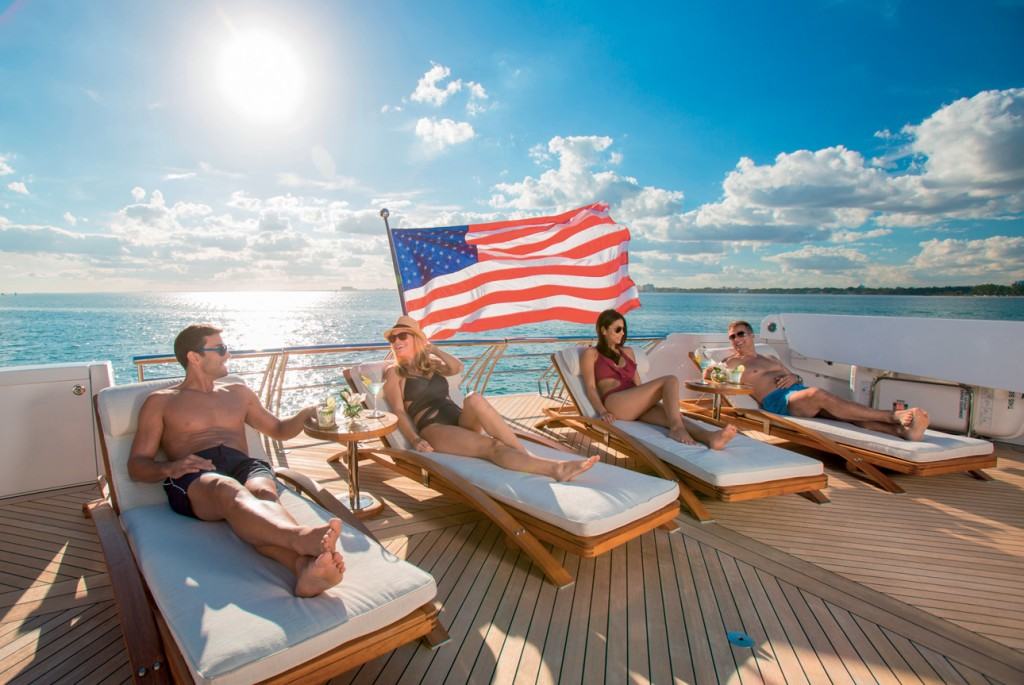
While the brand list of Monocle Yachts is broad, Simkowitz recently bought a number of 80′ Hargraves. ‘They are an excellent value, roomy, American-made and the builder provides great service,’ he says. Mike Joyce agrees that service earns re-orders. ‘We understand that people have limited time on the boat. We appreciate how hard people work to get out there so we do whatever is needed to help them.’ That includes using Caterpillar engines and its in-house, worldwide concierge service.’Loren understood service from day one. Selling the shares is easy- it’s everything that happens afterwards.
Fractional vs whole ownership
He is used to dealing with non-stop chaos.’ Joyce compares fractional yacht ownership to jet ownership. ‘Jets take it a face value-yachting, people are skeptical, but the more people do it, the more popular it will become. If I’m not going to own a yacht, let me get the best experience. I can get a 100′ experience for 40′ money. I can own a portion of 4-5 staterooms and a phenomenal crew. Everything is ready, the crew is at attention-Loren delivers.’ Simkowitz’ model keeps yacht ownership simple. If people want more time on board, they can buy additional shares. ‘People don’t NEED a boat,’ he states, ‘Yachts have the same appeal they always had, but now we can keep the costs down; yachts have gotten expensive- what used to cost $4-5 million is now in the teens. Billionaires can easily afford the boat but 55-70 is the time of your life to enjoy it!
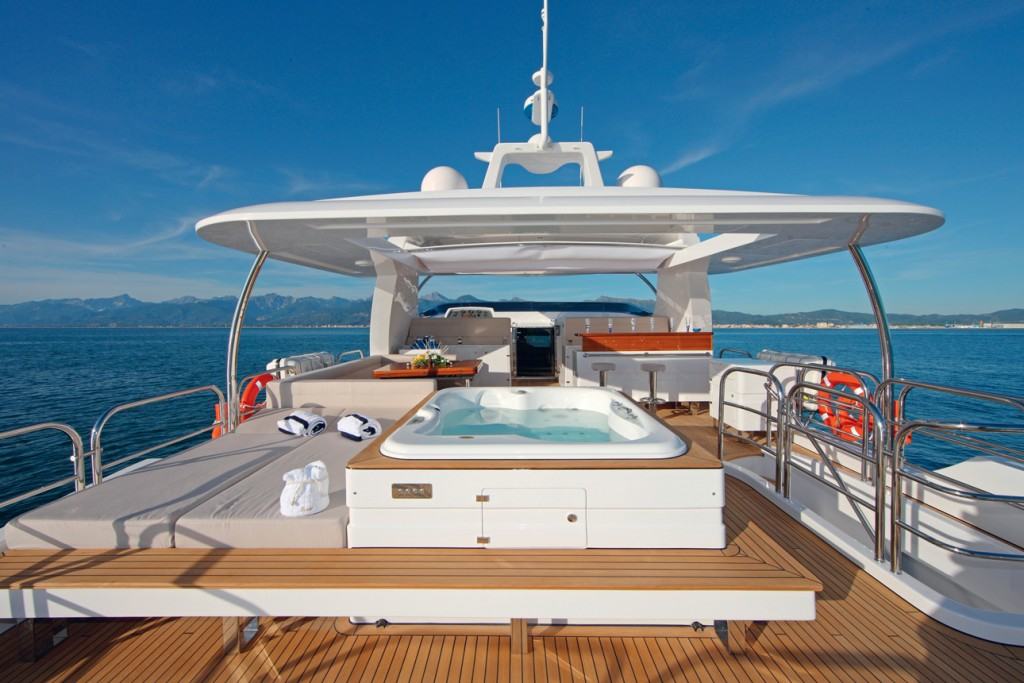
Our owners are real people-genuine-they don’t want the responsibility. They can swap and go to another boat and if they want out, we can buy them out or owners can put their boat in the program. Most don’t use them and they sit idle 65-70 percent of the time,’ Simkowitz says. ‘Management is the key and we provide consistency with the asset; you own the boat, it is just more care-free!’
SeaNet Fraction Yachts launched their concept in 2003, based on what they now call the ‘Regional’ program where yachters have a quarter equity position in a 60-80′ boat for 70-days per year. We spoke to the company’s President, Mike Costa, who explained their boats range in price from $300,000-750,000 and are located in Southern California, the Mexican Baja or Florida Atlantic coasts. They can be used daily or for longer trips and all the locations are available to equity partners.
SeaNet expanded into a ‘Fleet’ program that features new Benetti 93′ Delfino yachts, at ports in Europe, the USA and Caribbean and being added in the near future are new Benetti 108′ and 132′ yachts. Costa states that SeaNet has a ‘great partnership’ with Benetti, ensuring a consistent high quality in build and maintenance.
Quarter shares are sold at ownership costs, plus a share of the operating expenses. SeaNet handles all customer interactions through its luxury concierge service and also handles all yacht management. SeaNet of- fers a ‘Direct ownership relationship’ as the vessel is held as an asset by an LLC; owners have an operating agreement with opt-out clauses. Priority of who selects dates first changes each year, thus ensuring equal distribution of time. Shares are traded like stocks, meaning they can be sold at any time by the owners or by SeaNet.
As a third option, SeaNet offers a one-year, entry level ‘Yacht Membership Card’, priced between $79,500 to $163,800, entitling the holder to 28 days aboard a 50 to 80′ European-built yacht. Crewing, maintenance and service is included and members can use a single yacht or experiment with others in the fleet, booking for hours or weeks. Provisioning, fuel and mooring are the responsibility of the member, but otherwise SeaNet states, ‘Your only responsibility is to relax and have fun on the water.’
Fractional vs charter
‘It’s not really about money, it’s about time!’ states Costa, ‘All they have to do is show up and have a good time, without having to worry about the yacht crew, service or a contract. Many of our customers have multiple homes-skiing in the winter and off to the desert in the spring-they don’t have a lot of time but still want to enjoy the yacht ownership lifestyle. We only have so much time on this earth, we might as well enjoy it!’ Both Monocle and SeaNet can offer tax advantages for asset owners, but there is another non-tax oriented option for fractional yachts use.
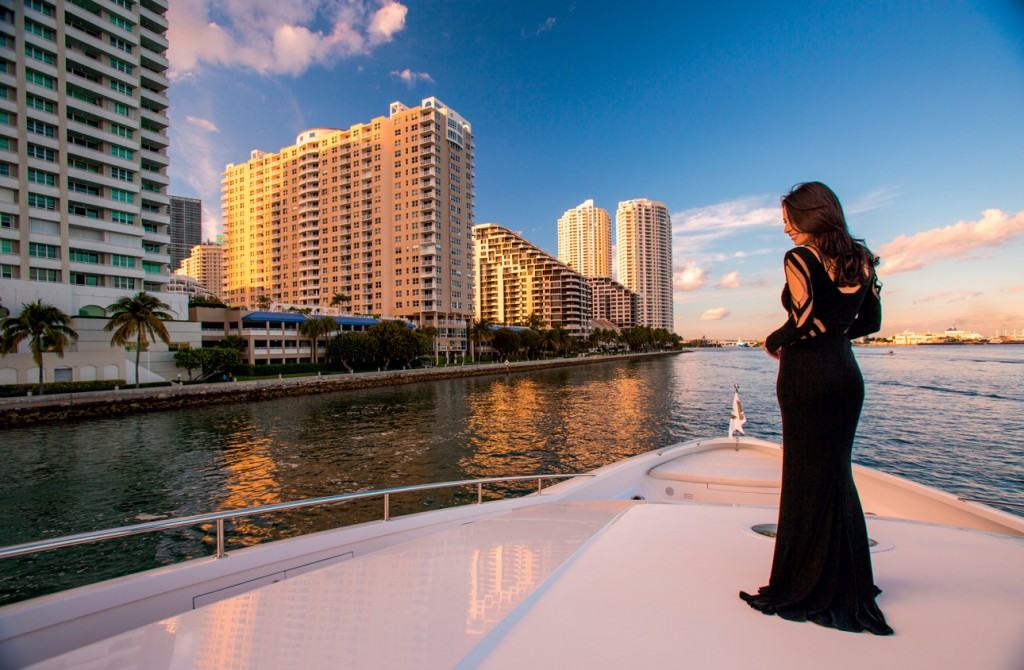
Fleet Miami, a new membership club, offers an easy way to give yachting a try. What happens when a businessman acquires a number of yachts, docks them in various ports, then realizes that he can’t use all of them? He decides to share his newfound love of the sea with others and Fleet Miami is created. ‘Charters are complicated. At times the contracts can be more detailed than buying a house and if the weather is bad, or there is an emergency and you can’t make the trip, it can become a less than satisfying experience,’ says Captain Glen Allen who yacht owner Michael Saylor first hired to literally teach him the ropes of yachting.
‘He had assets and decided to put them to use-the club formed itself,’ he adds. With a variety of yachts located not only in Miami, but also in Washington DC, New England, New York and the Med, Fleet Miami concentrated on utilizing its important personal assets; keeping crews busy, motivated and properly trained for each yacht. Fleet Miami makes it as simple as possible to enjoy yachting-a single page agreement is ‘less formal’ says Allen, a member buys ‘credits’ that are banked against future trips; the credit value varies dependent upon which yacht is used and the length of the trip.
Fleet Miami’s armada ranges from a custom-built water shuttle that conveniently jaunts from dock to restaurants and clubs in Miami, to the 154′ Delat, named Usher-ideal for the Bahamas and Keys with its 56′ Hampton support boat, and the 147′ Feadship, Harle with its 54′ Eastbay ‘support’ boat’ that has resided in the Mediterranean. The choices fit the member’s yachting mood for the day, week or fantasy trip. The membership ‘buy-in’ is structured into levels: Silver at $250,000 for 275 credits; Gold at $500,000 for 575 credits; Platinum at $1,000,000 for 1,200 credits.

Reservations for any yacht can be made hours or weeks in advance and member charters at $1,000/credit are also selectively booked. There are no penalties or fees except for provisioning, unused monies are refunded and you can cash out at any time. ‘Fleet Miami provides the ability to go anywhere and be at home on a yacht,’ says Allen, ‘And members will have the same high-quality yachting experience on any Fleet Miami boat.’ Partners differ from members in that they can put their own boats into the Fleet Miami program, benefit from its management and staffing efficiencies, use their own boats, charter them out to others or have Fleet Miami handle that as well.
The result? Busy boats and yacht crews who are not sitting idle, deteriorating or becoming bored. Allen calls the club members and partners, ‘Modern yachtsmen,’ businessmen with a flair for yachting. They are passionate, want to do things properly, but don’t have the time to dedicate to it.’ Unlike the yachtsmen of yesteryear who cruised without care,’Today’s yachters want to move about the planet and thanks to new technologies, can be in their offices no matter where they are,’ he adds. So while many yachts now include offices and most host every type of electronic technology and connectivity, yachters have the choice to escape business and the constant connect while at sea, or they can take their business aboard-flexibility is key.
With fractional ownership and membership possibilities, yachters can also choose how much responsibility they want for the asset itself. ‘I believe the world has changed,’ says Joyce, ‘People feel differently now-they are using more common sense. If you’re lucky, you get to spend time on your boat. Otherwise, you don’t get to use it. It is not ego-driven it is experience driven. Anything that can bring the cost down makes sense. Fractional Yacht ownership may be the answer.’
Fractional Yacht ownership: An owner perspective and costs
Will Ferguson owned a couple of smaller yachts, alone and with partners, before deciding to step up to an 80′ Hargrave through Monocle Yachts fractional yacht ownership. ‘I’ve always been a boat guy, but it takes a lot of mental energy and I’d feel guilty for not using it,’ he told us. ‘For me the boat became an anchor and I felt I was becoming a slave to my possessions.’ Now, Ferguson boats about once a month and finds fractional yacht ownership affordable and ‘just right’ for his two-week trips.
‘Americans don’t get away for more than two weeks and that gives the crew time to service the yacht. If your boat is not crew maintained, you spend the first few days in mindless prep time,’ he states, ‘Now, the engines are turning when we step onboard and we are ready to go!’ Having chartered often, Ferguson terms it an ‘uneven experience.’ He explains, ‘all charter companies do things a bit differently, and by the time a boat is in charter, there can be a danger it is a little ‘tired’.’
With fractional yacht ownership, Ferguson says he knows what he getting and has many possibilities: ‘The Bahamas this year, Maine and the Windwards next year?’ he hypothesizes, Ferguson also notes there are no additional costs except provisions and gas, and as a business expense, there are tax advantages. Since he shares the yacht with a small group, they have a relationship, but it is a ‘real business deal-I’m just surprised that half the boats on the water aren’t fractional.’ While he considered buying an extra share to extend his yachting excursion, Ferguson admits that there is not enough leisure time given he still likes to ski as well.
But for this fractional owner ‘yachting is pure pleasure. We can be self-sufficient in a remote location-we like hanging out and my kids love to swim. Nobody needs a boat and it is an absolutely ego-driven discretionary purchase. We can talk practicalities all day long, but I still believe it is ego-centered,’ he comments. ‘In cocktail conversations, in my blue blazer, I have that ‘Master of the Universe’ feel-it’s pretty cool!’
